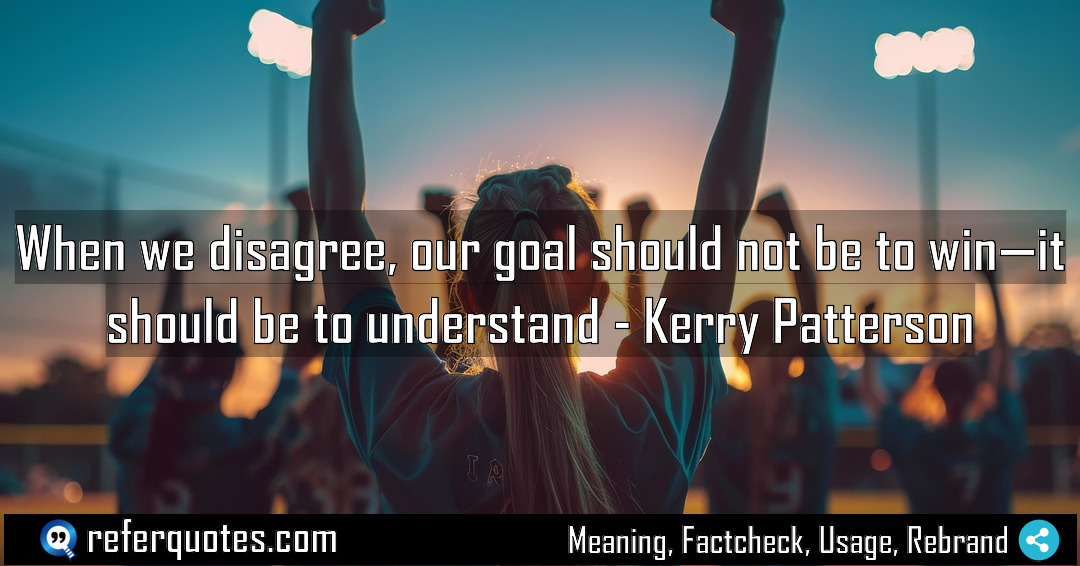When we disagree, our goal should not be to win. It should be to understand. This single shift in mindset is the secret to resolving any conflict.
Share Image Quote:Table of Contents
Meaning
It’s about shifting the entire purpose of a disagreement from a battle to be won to a puzzle to be solved, together.
Explanation
Look, here’s the thing I’ve learned after seeing this play out a thousand times. When you enter a tough conversation aiming to win, you’re basically turning the other person into an opponent. You stop listening. You just reload your next argument. And you know what happens? The conversation flatlines. It becomes a power struggle. But when you switch your goal to understand—to genuinely see their “movie,” as the authors say, the world they see from their side of the table—everything changes. You start asking questions. You get curious. And that curiosity, that’s what builds the safety and the shared pool of meaning that leads to a real breakthrough. It’s not about being soft; it’s about being smart.
Quote Summary
| Context | Attributes |
|---|---|
| Original Language | English (3668) |
| Category | Relationship (329) |
| Topics | dialogue (12), understanding (119) |
| Literary Style | minimalist (442), reflective (255) |
| Emotion / Mood | calm (491) |
| Overall Quote Score | 86 (262) |
Origin & Factcheck
This wisdom comes straight from the 2002 classic, Crucial Conversations, by the powerhouse team of Kerry Patterson, Joseph Grenny, Ron McMillan, and Al Switzler. You’ll sometimes see it misattributed to general communication gurus, but its home is firmly in their groundbreaking work on high-stakes dialogue.
Attribution Summary
| Context | Attributes |
|---|---|
| Author | Kerry Patterson (35) |
| Source Type | Book (4032) |
| Source/Book Name | Crucial Conversations: Tools for Talking When Stakes Are High (35) |
| Origin Timeperiod | 21st Century (1892) |
| Original Language | English (3668) |
| Authenticity | Verified (4032) |
Author Bio
Kerry Patterson coauthors influential books that help people tackle tough conversations, drive change, and build accountability at work and beyond. He cofounded VitalSmarts (now Crucial Learning) and spent decades developing training that organizations implement globally. He earned a master’s degree from Brigham Young University and completed doctoral work in organizational behavior at Stanford, and he has taught and consulted widely. The Kerry Patterson book list includes Crucial Conversations, Crucial Accountability, Influencer, and Change Anything—bestselling titles that continue to shape modern leadership and communication practices.
| Official Website
Where is this quotation located?
| Quotation | When we disagree, our goal should not be to win—it should be to understand |
| Book Details | Publication Year/Date: 2002; ISBN/Unique Identifier: 9780071771320; Last Edition: 3rd Edition (2021); Number of Pages: 272. |
| Where is it? | Chapter: Explore Others’ Paths, Approximate page from 2021 edition |
